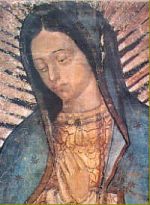Make your gift today!
Help keep Catholics around the world educated and informed.
Already donated? Log in to stop seeing these donation pop-ups.
Fathers of the Church
Epistle XI: to Rufinus, Bishop of Ephesus
by Gregory the Great in 590-604 | translated by James Barmby, D.d
Gregory to Rufinus, &c.
The charity of your acts of friendship in the past has moved us to visit your Fraternity with the present letter. For we have been refreshed with great joy by learning from reports given us of your health that all is well with you. But, while this is so, we implore Almighty God, that as in the present life, which is as it were a shadow of the future one, He has granted you to rejoice in the transitory welfare of your body, so in that heavenly country wherein is true life He may cause us to give thanks and rejoice with a common exultation for the perfected salvation of your soul. Now the bearer of this, desiring to be commended to you by a letter from us, having been asked by us whether he had learnt letters as becomes a clerk, replied that he was ignorant of them. What further commendation, then, with regard to him I should give to your Fraternity I know not; except that you should be solicitous about his soul, and watch over him with pastoral zeal, so that, as he cannot read, your tongue may be a book to him, and that in the goodness of your preaching and work he may see what to follow. For the living voice usually draws the heart more closely than perfunctory reading. But, while, as his master, you supply him inwardly with this spiritual teaching, let not outward care for him also be wanting, that by its aid he come to long for spiritual things, and lest, if such aid is slighted, you should no longer have one to preach to.
Taken from "The Early Church Fathers and Other Works" originally published by Wm. B. Eerdmans Pub. Co. in English in Edinburgh, Scotland, beginning in 1867. (LNPF II/XII, Schaff and Wace). The digital version is by The Electronic Bible Society, P.O. Box 701356, Dallas, TX 75370, 214-407-WORD.






